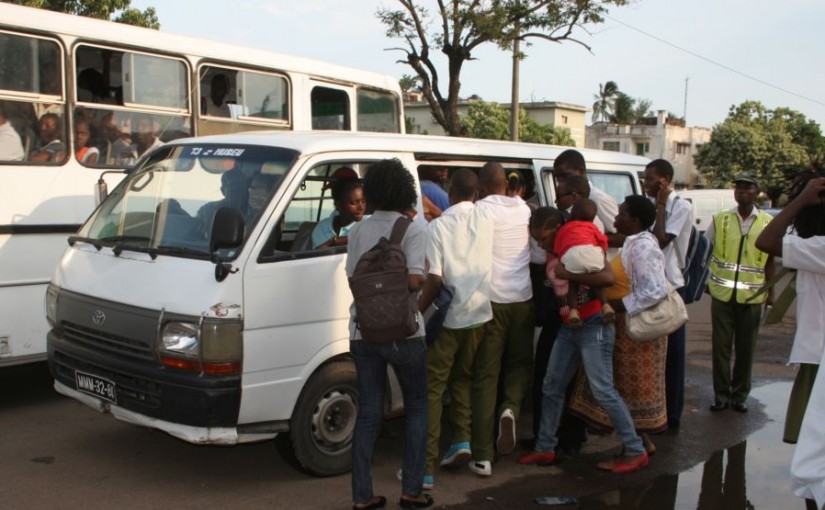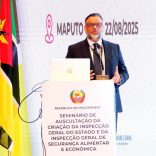Mozambique: LAM wet-leases A319 from Ukraine
Transport fuel subsidy remains in effect – Government

File photo
The Mozambican government has promised that the increase in fuel prices which took effect on Saturday will not affect passenger transport, which remains subsidised.
Licensed minibuses used in passenger transport (and known colloquially as “chapas”) currently pay only 31 meticais (about 40 US cents, at current exchange rates) for a litre of diesel. Interviewed by the independent television station STV, Transport Minister Carlos Mesquita said this subsidy will remain in place, with the government picking up the bill for anything above 31 meticais.
The cost of diesel at the pumps rose on Saturday from 36.81 to 45.83 meticais a litre. The government is committed to paying the fuel distributors the difference between 31 meticais and the real price. So for every litre of diesel used by a “chapa”, the government must pay the fuel distributor 14.83 meticais,
Mesquita said there was therefore “no reason to increase transport fares” – but the owners of the minibuses disagree, partly because the subsidy only benefits licensed operators, and many of them are unlicensed. They also protest that fuel is only one of their overheads – they must also pay for tyres, spare parts, and maintenance, all of which have increased in price.
The current flat rate fares on chapas in Maputo and the neighbouring city of Matola are seven or nine meticais, depending on distance.
The National Director of Energy, Almirante Dimas, said that, although the price of oil has been falling on the world market, this has been more than cancelled out by the devaluation of the metical against the US dollar, the currency in which fuel imports are denominated. The price Mozambique had to pay for those imports, when expressed in meticais, was continually rising.
The state cannot continue to offer generalized subsidies, Dimas said, and so “people must pay for what they consume”. He added the price increase had not been dictated by the International Monetary Fund (IMF) during the recent discussions between the government and the IMF.
Finance Minister Adriano Maleiane pointed out that Mozambican fuel prices are lower than those in neighbouring countries. So Mozambique had not only been subsidising the chapas – low fuel prices also subsidised motorists in neighbouring countries (notably Zimbabwe), who could just drive over the border and fill their tanks in Mozambique.












Leave a Reply
Be the First to Comment!
You must be logged in to post a comment.
You must be logged in to post a comment.